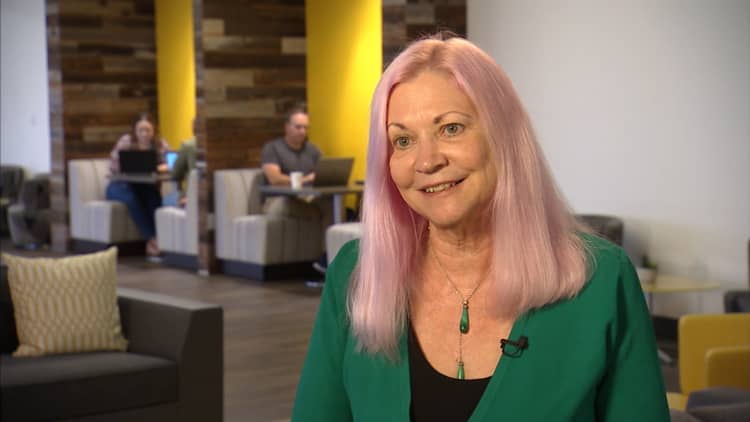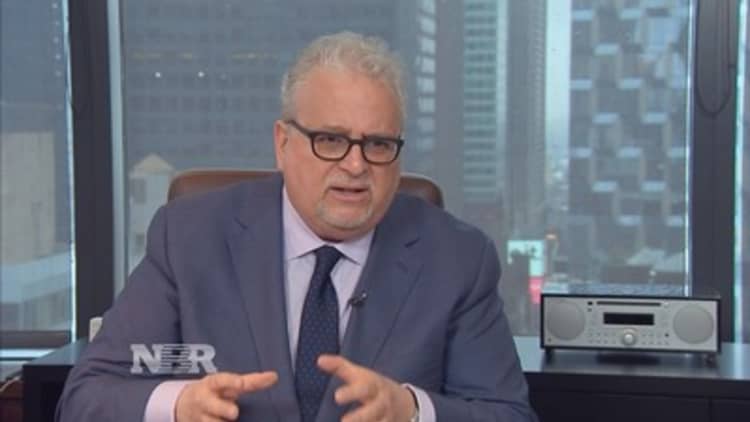In the #MeToo era, the stakes are high for corporations failing to rout out sexual harassment.
Allegations of predatory behavior bankrupted Harvey Weinstein's company and forced Steve Wynn out of the company he co-founded, sending Wynn Resorts stock on a roller coaster ride.
In response, corporations and private equity firms are turning to private investigators like Dan Nardello — a former federal prosecutor at the Manhattan U.S. Attorney's Office, who now runs his own firm — in droves.
"An ounce of prevention is really worth a pound of cure here, because the cost of potential drop in stock price, legal and PR cost — the possibility of regulators getting involved and regulating industries — they are enormous compared with the relatively modest expenditure in hiring folks like us in order to rule out this behavior," said Nardello, CEO of Nardello & Co.
The veteran private investigator — Nardello has 25 years in the detective business — has seen about 35 percent more client calls related to sexual misconduct over the last six months.
"I have never seen a societal phenomenon that has had the impact on our business as the #MeToo movement and the post-Weinstein world," he said.
Corporations and private equity firms are looking for help in due diligence ahead of acquisitions, said Nardello. Other clients want help looking into the backgrounds of potential board members and C-suite hires, and some are seeking possible predatory behavior in competitors — a move that one of the firm's clients calls "weaponizing feminism."

Nardello often gets work through lawyers like Ed Little, a partner at the law firm Hughes Hubbard & Reed, who recently sought help clearing the name of a client who had been accused of sexual misconduct.
"The #MeToo movement is a very valid movement but there's been an overreaction we believe," said Little. "So in representing someone who has been accused, it's important to find out if there's any credibility to their accusation."
The two men worked together as federal prosecutors under New York Mayor Rudy Giuliani in 1980s.
"We want a firm that is very ethical, that does it the right way because number one it's the right thing to do and number two you don't want it to blow up in your face later on in a trial," said Little.
Nardello & Co. COO Sabina Menschel walked CNBC through their client offerings, starting with online searches.
Investigators typically begin by searching the person's name in combination with whatever other information they can find, such as date of birth, social security number or home address. The next step is plugging that information into proprietary databases, which the firm is licensed to access, including Lexus Nexis.
"This is not something that we depend on entirely, but it's just a place to start," she said. "They allow us to search for publicly available information."
Investigators canvass the web, looking at social media sites like Instagram and Twitter, as well as review sites like Glassdoor to glean any relevant information and hone in on people they might want to interview.
I have never seen a societal phenomenon that has had the impact on our business as the #MeToo movement and the post-Weinstein world.Dan NardelloCEO, Nardello & Co.
"We always complement that as well with what we call 'on-site searches,'" said Menschel.
On-site searches include sending investigators to where the subject has lived or worked, to search local databases like county court records and knock on doors. Nardello's team includes former federal, state and local law enforcement agents, IT specialists and can tap sources at various agencies that can legitimately provide information.
Investigators also develop sources and interview neighbors, friends, former colleagues, former spouses or litigation adversaries, if the subject has been involved in lawsuits in the past, said Menschel.
"Sometimes people don't want to speak, but I find more often than not I'm actually surprised that they do want to speak, and they are willing to speak," she said.
Clients are listening, said Nardello. He's seen private equity firms walk away from deals and companies decide against hiring individuals after discovering sexual misconduct.
Still, despite the wave of allegations of predatory behavior during the #MeToo movement we may have only seen the tip of the iceberg, said Nardello.
"There's more of this behavior than certainly I would ever have anticipated," he said. "It is shocking to me how much of this behavior that there is out there."
Like this story? Like CNBC Make It on Facebook
Don't miss: Sheryl Sandberg has a message for men who've adopted the 'Pence rule'





